Explore
Search results

Empathy is typically seen as wonderful, central to cooperation, caring, and morality. We want to have empathic parents, children, spouses and friends; we want to train those in the helping professions to expand their empathy, and we certainly want to elect empathic politicians and policy makers. But empathy has certain troubling features, and questions have begun to arise...


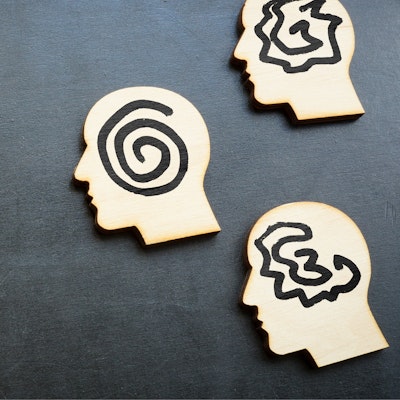
The human capacity for empathy allows us to communicate, collaborate and understand each other. But we all know empathy isn’t always easy, and we can feel worn down by the effort. MIT professor and researcher Sherry Turkle studies empathy, and particularly how technology can undermine our natural human tendencies to connect. After several books and many decades of work com...
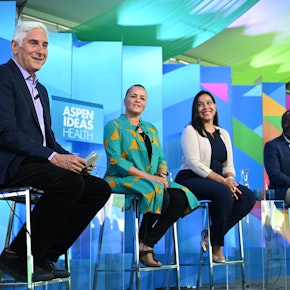
No doctor awakens in the morning determined to discriminate against patients of color, yet their daily clinical decisions too often have that result. Implicit bias—unconscious assumptions and stereotypes—often cause the harm. The failure to ask the right questions, listen closely and reserve judgment can sabotage communication in any patient/physician encounter, but it wor...

Democracy is in danger, not only in foreign places where autocrats rule, but also here at home. We are divided between those who would let the people rule and those who would allow rule by the powerful, greedy few. Defending our democratic system takes a new kind of democratic practice. It’s not only the practice of communal celebration; it’s the cultivation of self. Presi...
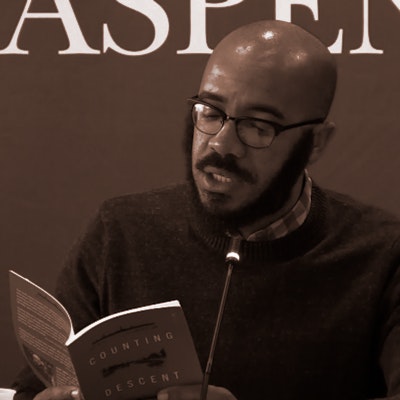

Clint Smith is a high school educator, a Harvard PhD candidate, and a slam poet. In a series of spoken-word performances, Smith confronts inequality in American society. His poetry touches on black parenting, social justice, and violence against kids of color. Following his performance, three high school students from the South Washington, DC, area are interviewed about ho...

Storytelling is a uniquely human activity, helping us to make sense of the world, cultivate empathy, honor the past, and pass on traditions. Everyone has a story to tell, and sharing them can be an act of love, an expression of compassion, and a way to explore our humanity more fully. Careful listening also builds health-promoting connections among caregivers, family membe...

Most people think the only problem with empathy is that we don’t have enough of it. Drawing on research into psychopathy, criminal behavior, charitable giving, cognitive neuroscience, and Buddhist meditation practices, Yale psychologist Paul Bloom argues that this is mistaken. Empathy makes us worse as people. We are better off, Bloom says, in both public policy and intima...

Every day, young people connect with peers around the world in collaborative, technology-enabled learning experiences where they learn about and with each other. This session explores how facilitated technology can empower young people from different backgrounds to share their personal narratives and explore their differences for a deeper connection and understanding. The...

Everyone has a story to tell – and sharing them reminds us of our common humanity. Few know this better than StoryCorps CEO Sandra Clark. Over the last 20 years, the organization has collected, archived, and shared the extraordinary stories of everyday people. Learn about the powerful ways storytelling and listening can help cultivate empathy and foster understanding.

From academic pressures to classroom shootings, economic uncertainty to climate change, young people are facing more stressors than ever, and it’s surfacing in some terrible ways. In the past 12 months, 62 percent of college students said they had felt overwhelming anxiety at some point, 41 percent were so depressed that it was difficult to function, and 11 percent had ser...

Our country’s social fabric is badly frayed by distrust, division and exclusion. But across America, people are quietly working to end loneliness and isolation and weave together inclusive communities. Meet some remarkable ordinary Americans who are “weaving” every day — swimming against the current of hyper-individualism and doing their part to put trust, empathy, connect...

In America, millions of people struggle with mental health including depression, anxiety, and more — all further exacerbated by living through a pandemic. The National Alliance on Mental Illness reports that one in five adults experience mental illness each year, but despite how common it is, mental health is still surrounded by stigma and shame. Our experts are candid abo...

October is National Book Month, and we’re celebrating by looking back at some of our favorite conversations about reading and writing from the Aspen Ideas Festival and Aspen Ideas: Health. Hear from National Book Award winner Imani Perry, poet and memoirist Javier Zamora, bestselling novelist Amor Towles, Pulitzer Prize winner Geraldine Brooks, nonfiction master Tracy Kidd...

Creative expression takes many forms. Through history, art has provoked a range of feelings: emotion, empathy, fear, surprise, joy, compassion, anger. Now, amidst a time of national angst, where many in society might not hear the voices of those who don’t agree, a group of remarkable artists and political strategists are imagining ways that art can be used to catalyze dif...
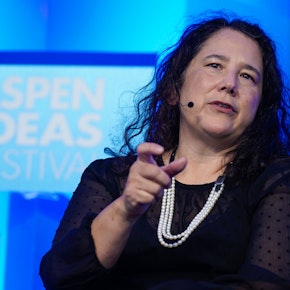
As U.S. cities adjust to a new post-pandemic normal — characterized by empty office buildings and decreased foot traffic — how are city and federal leaders working with small businesses to reimagine downtowns?

For years, dogs have been getting the short end of the stick — so to speak — when it comes to research. Dolphins and primates get lots of attention. Now, it’s the dog’s turn. Two experts, Alexandra Horowitz and Brian Hare, are part of a growing number of scientists researching canine cognition. They study what a dog knows, understands, and believes. Sure, it’s nice to know...

The Healthy Hunger-free Kids Act, passed in 2010, was the first major nutrition update to school meals in decades. Public school lunches now offer more vegetables, less sodium, less sugar, and fewer empty calories—a major victory for nutrition advocates in the battle against childhood obesity. But kids miss the empty calorie foods and many schools are finding the programs...

Thinking about the far-off future isn’t just an exercise in intellectual curiosity. It’s a practical skill that, as new research reveals, has a direct neurological link to greater creativity, empathy, and optimism. In this session from master game designer and acclaimed futurist Jane McGonigal, you’ll learn three practical habits that will increase the power of your imagin...
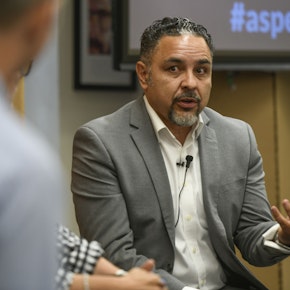
Financial-technology innovation is accelerating globally, making financial services more affordable, convenient, and secure for individuals and businesses. Billions of people — and entire economies — stand to benefit from this transition, but more work must be done to unlock the full potential of these innovations. What is fintech’s role in driving inclusive economic growt...







